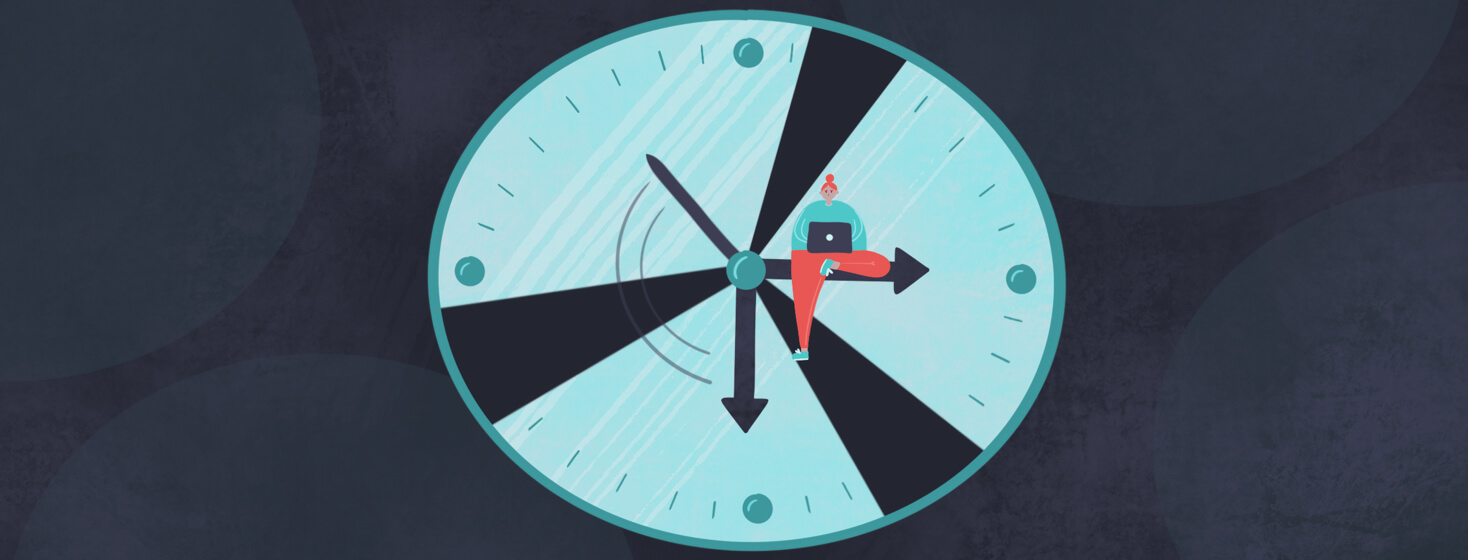Automatic Behavior: Navigating Through Episodes
Have you ever lost 5 full minutes of your life?
You sit at your desk and look at the time. It's 11:05 AM. You look again, and it's suddenly 11:10 AM... and no, it's not the clock that's faulty.
You know this because you look around; there are tell-tale signs that time really has passed.
Subtle signs of missing time
The signs are subtle but noticeable. The colleague who was just sitting beside you is no longer there. There is a whole heap of new emails in your inbox... and it seems that someone has started replying to one of them, and in a scribbled, unreadable manner too.
As you try to retrace your last steps, you find that your memory is somewhat... foggy.
You remember coming back to your desk with a cup of coffee and then starting to read through your emails, and then the moments after that don't seem so clear. The memory of getting coffee and reading emails is clear and defined. The rest simply presents itself in broken, unfocused fragments.
Barely any memory of your own actions
You begin to regain small images of your hand on the mouse, scrolling down the page. Your fingers typing abnormally slowly – one letter at a time. But this memory feels as though you are watching someone else, as though your body is not yours.
Somehow, you can remember performing these actions but never feeling that connection. The one where your brain consciously decides to transmit a command to your physical self. However, there is no other explanation.
You did do this. You just have barely any memory of it.
Understanding automatic behavior
So, what was the cause of this strange episode? These episodes are caused by a symptom of narcolepsy known as "automatic behavior."
An article entitled Narcolepsy with Cataplexy: What we know about it in 2021 offered one of the most detailed explanations of automatic behavior that I have discovered so far. It outlines that automatic behavior:
characterizes the continuation of automated activities in a state of drowsiness for a few seconds to 30 minutes. In this state, perception and memory are impaired, speech and movements may be stereotyped and out of context… it is a nonspecific consequence of increased daytime sleepiness that occurs in approximately 80% of all narcolepsy patients, usually in somewhat monotonous situations, and cannot be overcome completely through activity.1
It is as though your brain wants to regain control over a body that has been sequestered.
Managing automatic behavior
Throughout the years (and many distressing experiences), I learned a few important lessons about how to best handle episodes of automatic behavior.
Fighting it is prolonging it
For me personally, the more I struggle to regain control over myself, the more anxious and frustrated I become... which in turn exacerbates the symptom itself. Try to relax in order to allow it to pass.
More naps = less lapse
Having to stay at home for so long during the lockdown had one very positive outcome – discovering that managing my own schedule greatly improves my symptoms! Having the ability to nap for as long as I want, whenever I want is a great way to reduce automatic behavior.
Keeping track of triggers
I write down a small annotation in a notebook or piece of paper whenever I have an episode. As soon as it passes, if I am able to, I try to retrace my steps so that I can, hopefully, identify triggers or possible patterns that could help me better navigate, predict or even avoid episodes of automatic behavior.
At the end of the day, being aware of yourself and testing out coping mechanisms until you figure out what works for you is crucial to dealing with this condition and helping us to feel more in control all around.

Join the conversation